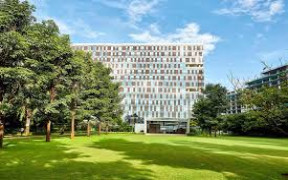Top BSc Food Science And Technology Colleges in Bangalore
In today’s world, the food industry plays a vital role in our daily lives. With increasing awareness of health and sustainability, food science and technology has become a rapidly growing field. A BSc Food Science and Technology course equips students with the knowledge and skills to address global food challenges, from food processing to safety, innovation, and sustainability. Bangalore, known as an educational hub, offers various institutions offering BSc Food Science and Technology programs that provide top-tier education in this exciting and ever-evolving field. In this article, we’ll explore everything you need to know about pursuing a BSc Food Science and Technology course in Bangalore, including top BSc Food Science And Technology colleges, admission procedures, placements, fees, and more.
List of Top BSc Food Science And Technology Colleges in Bangalore
Bangalore is home to several prestigious institutions that offer a BSc Food Science and Technology course. These colleges provide high-quality education, modern infrastructure, and state-of-the-art laboratories, preparing students for successful careers in food science and technology. Here are some of the top BSc Food Science and Technology colleges in Bangalore:
Top BSc Courses in Bangalore
What is BSc Food Science and Technology?
BSc Food Science and Technology is a three-year undergraduate course that blends food science with technology. It is designed to provide students with a comprehensive understanding of food production, food safety, food chemistry, food engineering, and food processing. The course aims to develop professionals who can innovate, design, and improve the quality and sustainability of food products while ensuring their safety and nutritional value.
Key subjects covered in the BSc Food Science and Technology curriculum include:
- Food Chemistry and Biochemistry
- Food Microbiology
- Food Safety and Quality Control
- Food Engineering and Processing
- Nutrition and Dietetics
- Food Packaging
- Sensory Evaluation of Food
- Food Preservation Techniques
- Food Laws and Regulations
The BSc Food Science And Technology program combines theoretical learning with practical experience in laboratories and internships, ensuring students are well-prepared to meet the challenges in the food industry.
BSc Food Science and Technology Admission Procedure in Bangalore
The admission process for the BSc Food Science and Technology course in Bangalore usually follows these steps:
-
Eligibility Criteria
- To be eligible for admission to a BSc Food Science and Technology program, candidates must have completed their 10+2 or equivalent education in the Science stream with a minimum aggregate of 50% marks. Subjects like Physics, Chemistry, and Biology are often required.
- Some colleges may also consider subjects like Mathematics or Home Science in the eligibility criteria.
-
Entrance Exams
- Many top institutions in Bangalore, including Christ University and Jain University, conduct their own entrance exams for BSc Food Science and Technology admissions. These exams assess a candidate’s aptitude in subjects like Physics, Chemistry, Biology, and Mathematics.
- Entrance exams are followed by a personal interview or counseling session to assess the candidate's interest and motivation.
-
Application Process
- Students must fill out the application form for their chosen college or university. This can be done either online or offline, depending on the institution. Along with the application form, students are required to submit:
- 10+2 mark sheet
- Passport-sized photographs
- Proof of identity
- Entrance exam scorecard (if applicable)
- Students must fill out the application form for their chosen college or university. This can be done either online or offline, depending on the institution. Along with the application form, students are required to submit:
-
Merit-based Admission
- Some colleges may offer merit-based admission where students are selected based on their performance in the 10+2 exams. In such cases, students do not have to appear for an entrance exam but must meet the eligibility requirements.
-
Final Admission
- Once selected, students will be required to complete the admission formalities, which include payment of the course fees, document verification, and submission of other required documents.
Direct Admission for BSc Food Science and Technology Colleges in Bangalore
Some private colleges in Bangalore offer direct admission to the BSc Food Science and Technology program. Students who meet the eligibility criteria but are unable to clear the entrance exam can opt for direct admission, subject to athe vailability of seats. The selection is generally based on merit (marks obtained in 10+2) rather than through an entrance exam.
Direct admission may come with higher tuition fees, so students should thoroughly research the fee structure, scholarship opportunities, and college reputation before opting for this route.
Placements After BSc Food Science and Technology in Bangalore
The food industry in India and around the world is expanding rapidly, leading to increased demand for skilled professionals in food science and technology. Graduates of the BSc Food Science and Technology program in Bangalore can expect numerous placement opportunities in a variety of industries. Here are some of the sectors where graduates can find jobs:
- Food Processing Industry: Companies involved in food manufacturing, packaging, and distribution require food scientists to oversee product development, quality control, and production management.
- Food Safety and Quality Control: Graduates can work in food testing labs, regulatory agencies, or quality control departments in food companies to ensure that food products meet safety and quality standards.
- R&D (Research and Development): Food R&D companies hire food scientists and technologists to innovate and create new food products or improve existing ones.
- Food Regulatory Agencies: Government bodies like the Food Safety and Standards Authority of India (FSSAI) require experts in food law, regulation, and compliance to ensure food safety across the country.
- Consulting and Corporate Wellness: Graduates can work as consultants in food businesses or corporate wellness programs, advising on nutrition and food safety.
- Entrepreneurship: With the knowledge gained during the course, graduates can also venture into the food business, starting their own food processing or packaging ventures.
Top employers for BSc Food Science and Technology graduates include:
- Nestlé
- PepsiCo
- Coca-Cola
- Amul
- Britannia
- ITC
- FSSAI
- Dabur
- BASF
- Government food laboratories and regulatory agencies
The average salary for BSc Food Science and Technology graduates ranges between ₹3,00,000 to ₹6,00,000 per annum, depending on the employer and experience.
Why Study BSc Food Science and Technology?
-
In-Demand Profession: As the food industry continues to grow, the demand for skilled professionals in food science and technology is on the rise. Graduates have numerous career opportunities in the food sector, research, and public health.
-
Impactful Career: This field allows professionals to contribute to food security, safety, nutrition, and sustainability, addressing key global challenges.
-
Diverse Career Options: Graduates can pursue careers in various sectors, including food manufacturing, quality control, food safety, R&D, regulatory agencies, and consulting.
-
Cutting-Edge Research: Students are exposed to the latest technologies in food production, food processing, and food safety, making the program ideal for those interested in innovation and research.
-
Global Opportunities: The knowledge and skills gained from the program are highly transferable, offering opportunities to work both in India and abroad in the food and beverage industry.
BSc Food Science and Technology Fee in Bangalore
The tuition fees for BSc Food Science and Technology in Bangalore typically range between ₹50,000 to ₹1,50,000 per year. The fee structure varies depending on the college, with private colleges generally charging higher fees than government institutions. Additionally, students should also budget for hostel, laboratory, and miscellaneous expenses.
Many colleges offer scholarships and financial assistance programs to help reduce the financial burden for students.
Conclusion
The BSc Food Science and Technology course in Bangalore offers an exciting and rewarding career path for students interested in food production, safety, and innovation. With a growing demand for professionals in this field, Bangalore’s top colleges offer quality education, practical exposure, and excellent placement opportunities. If you have a passion for food science and technology, this course is an excellent choice to make a positive impact in the food industry while pursuing a dynamic career.
FAQ's for BSc Food Science And Technology Colleges in Bangalore
During the BSc Food Science and Technology course, students can stay updated by attending workshops, seminars, and conferences on food innovations, subscribing to food technology journals, and engaging with professionals in the field through internships and networking events.
Nutrition plays a crucial role in the BSc Food Science and Technology course as it provides students with an understanding of how food affects health. This knowledge helps in developing nutritionally balanced and functional food products.
The future prospects for graduates of the BSc Food Science and Technology course are bright, with increasing demand for professionals in food innovation, sustainability, food safety, and product development in both domestic and global markets.
Yes, graduates of the BSc Food Science and Technology course can enter the food industry immediately after completing the course, taking up roles in food processing, packaging, quality assurance, and research positions in food companies.
Food microbiology is crucial in the BSc Food Science and Technology course, as it helps students understand the role of microorganisms in food spoilage, fermentation, and preservation. This knowledge is essential for ensuring food safety and extending shelf life.
The BSc Food Science and Technology course offers research opportunities in areas like food chemistry, food safety, biotechnology, and food engineering. Students can engage in projects that contribute to food innovation and improvements in food production.
The BSc Food Science and Technology course teaches students about sustainable food production methods, including reducing food waste, improving energy efficiency in food manufacturing, and developing eco-friendly packaging solutions.
Food quality control is a key component of the BSc Food Science and Technology course. Students learn to assess food quality through various tests, ensuring food products meet industry standards for safety, taste, texture, and nutritional value.
Yes, after completing the BSc Food Science and Technology course, graduates can start their own food processing business, food consultancy, or product development firm. The course provides the necessary knowledge to innovate and operate within the food industry.
Food science focuses on the study of food components, nutrition, and the science behind food properties, while food technology applies this scientific knowledge to develop new food products, improve food processing, and enhance food safety. Both are integrated in the BSc Food Science and Technology course.
Graduates of the BSc Food Science and Technology course can work in various industries, including food manufacturing, packaging, food safety regulation, nutrition, research and development, and even in food service management.
Food processing is an essential aspect of the BSc Food Science and Technology course. It involves transforming raw ingredients into safe, nutritious, and shelf-stable food products. The course covers various processing methods such as freezing, drying, and fermentation.
Enquire Now
Top 10 BSc Food Science And Technology Colleges in Bangalore
Top Courses

List of Best 10 Colleges in Bangalore
- Yenepoya University Bangalore
- Navaneetham College of Nursing Bangalore
- Vanshika Group of Institutions Bangalore
- Hita College Of Nursing Bangalore
- Samvaad Institute of Speech and Hearing Bangalore
- Sampoorna Group of Institutions Bangalore
- Naseema Institute of Speech and Hearing Bangalore
- Dr. S.R Chandrasekhar Institute Of Speech And Hearing Bangalore
- Chanakya University Bangalore
- Acharya Institute of Health Sciences Bangalore
Study in Bangalore
- Study Bachelor Of Prosthetic And Orthotics in Bangalore
- Study BS eMobility in Bangalore
- Study BS Life Sciences in Bangalore
- Study BS Sustainable Entrepreneurship in Bangalore
- Study BSc - MSc Integrated Clinical Embryology in Bangalore
- Study BSc (Hons.) Animation, Visual Effects and Gaming in Bangalore
- Study BSc (Hons) Computer Science in Bangalore
- Study BSc Accountancy and Analytics in Bangalore
- Study BSc Actuarial Science in Bangalore
- Study BSc Airlines, Tourism & Hospitality in Bangalore
- Study BSc Animation in Bangalore
- Study BSc Animation & Game Design in Bangalore
- Study BSc Animation and VFX in Bangalore
- Study BSc Applied Forensic Science in Bangalore
- Study BSc Applied Sciences in Bangalore



